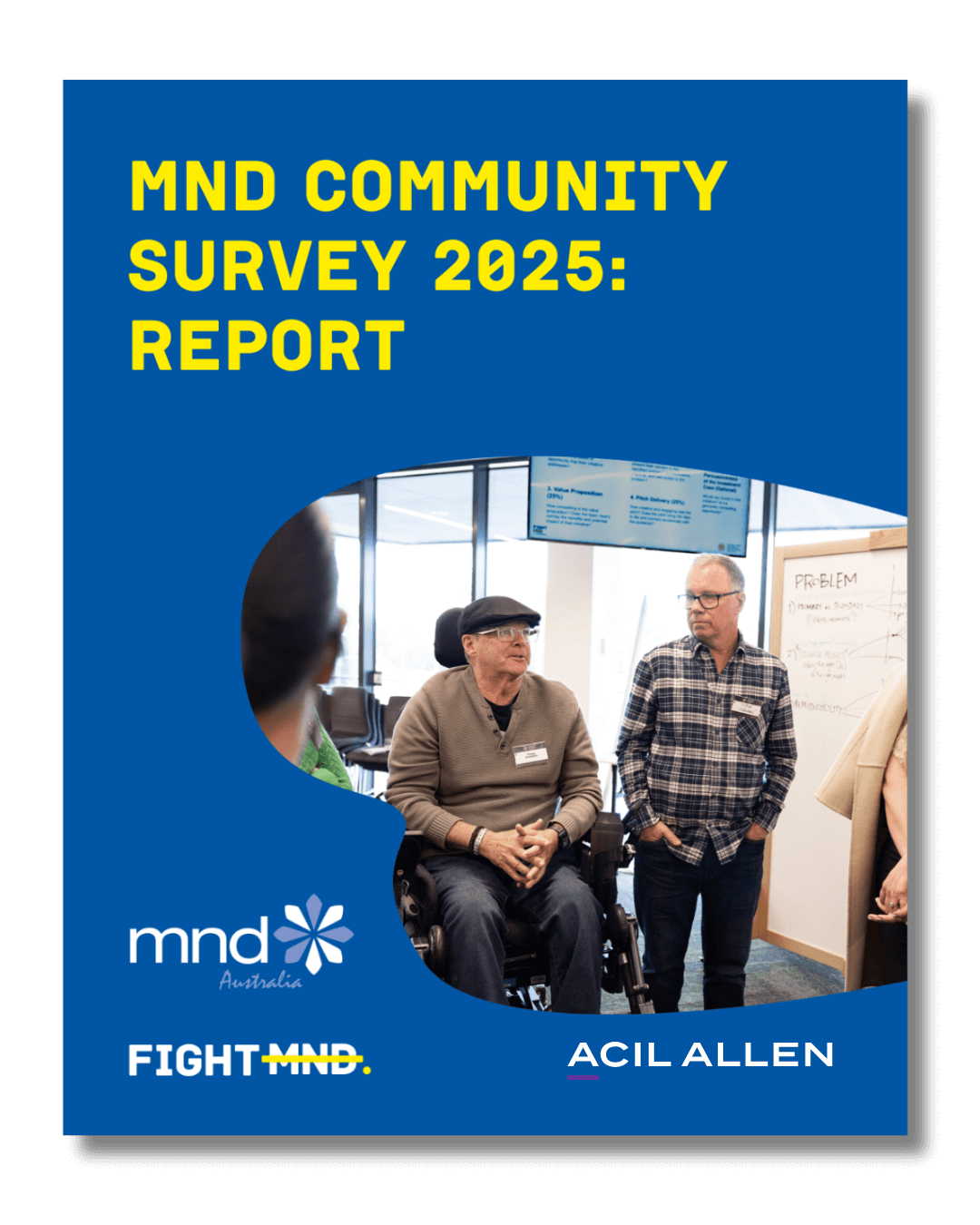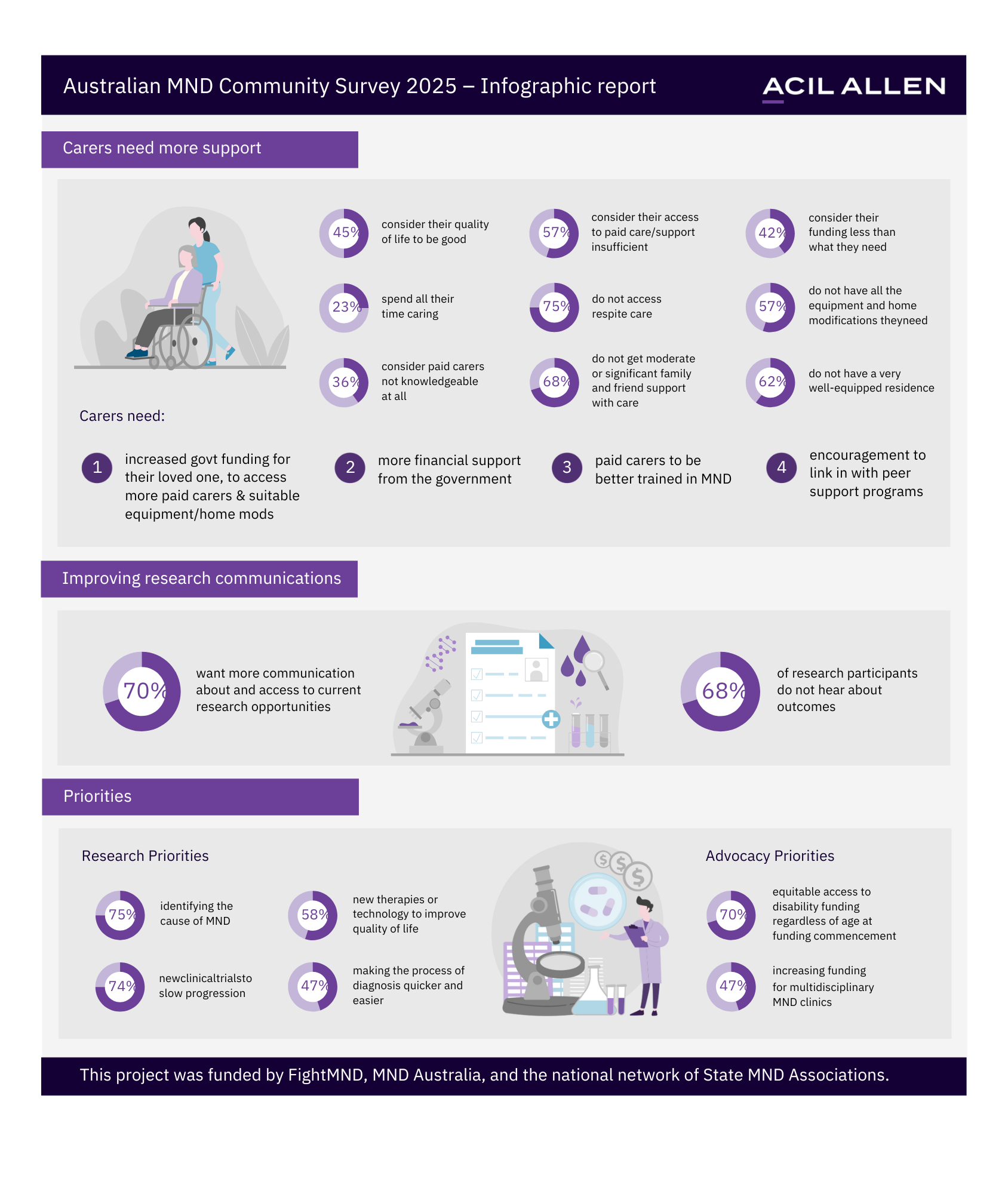In early 2025, we teamed up with FightMND and independent consultants ACIL Allen, to survey people with lived experience with MND across Australia.
We undertook the survey to better understand:
- the quality of life for people impacted by MND
- the experience of engaging with, and navigating, care and support
- participation in research and future research priorities
- opportunities for future advocacy priorities
Key findings
Almost 500 people completed the survey, which identified the following key findings:
- Connection to family, friends and community improves quality of life for people living with MND, however, this is reliant on people having access to services and supports that meets their needs (eg equipment, MND health professionals etc)
- Family carers rated their quality of life poorer than others impacted by MND, reflecting the intensive demands of caring and the lack of sufficient supports
- The majority of people living with MND want to participate in research, however, restrictive inclusion criteria, time requirements and travel distance impact on uptake
- People living with MND and their carers are able to find most of the information they need. Key information sources include mndaustralia.org.au and State MND Association newsletters
- People with an asymptomatic MND-related gene often feel disconnected from the community, information and clinical trials; underserved by health professionals, or burdened by stigma
- A top advocacy priority is equitable access to government disability support funding, regardless of the age at diagnosis
Further findings from the survey our outlined in the downloadable infographic and full survey report below.
Webinar presentation below from research consultancy ACIL ALLEN on the findings from the MND Community Survey



.png)
